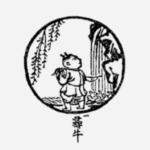
Madhyamakavatara – 8-Week Program
Week 1 Pre-Reading
Summary
Date: 7 June
Topic: Introduction to the view of the Middle Way
Text: Madhyamakavatara (Introduction to the Middle Way) : Introduction, pages 1 to 10 in the PDF version. (To download a copy, the instructions are here)
Questions: What is the view and why is it so important in Buddhism?
Keywords: Buddhism, view, emptiness, Middle Way
Also available: audio/video recordings and transcript/translations for Week 1.
Preparation (required)
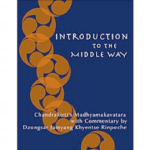
Download a copy of Introduction to the Middle Way (also available in French and Russian), Dzongsar Khyentse Rinpoche’s commentary on Chandrakirti’s Madhyamakavatara. This will be our reference text for the 8-Week Program.
Download the book here [free download from Siddhartha’s Intent].
The chapters we will cover each week are listed in the Program Outline.
Pre-Reading (optional)

Dzongsar Khyentse Rinpoche (2004) Introduction to the Middle Way [see: bibliography]
Rinpoche introduces the Madhyamaka (pp. 1-3), and offers a brief overview of the history of the Madhyamaka in India and Tibet (pp. 5-9)

Dzongsar Khyentse Rinpoche (2003) ➜”Life as Cinema” in Lion’s Roar (reposted 2016)
Rinpoche introduces the view of the Middle Way by comparing our experience of life to watching a movie. We won’t get far in our practice unless we understand emptiness:
“This is what the dharma practitioner needs to understand — that the whole of samsara, or nirvana, is as essenceless or untrue as that film. Until we see this, it will be very difficult for dharma to sink into our minds. We will always be carried away, seduced by the glory and beauty of this world, by all the apparent success and failure. However, once we see, even just for a second, that these appearances are not real, we will gain a certain confidence.”
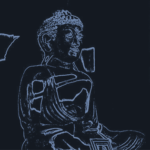
Donald Lopez (2012) ➜”The Scientific Buddha” in Info-Buddhism
Lopez invites us to question our approach to the study and practice of Buddhism: do we see it as just another form of self-help? Or are we seeking genuine liberation? Lopez offers a pointed critique of mindfulness as stress reduction and asks us to remember the true purpose of Buddha’s teachings.
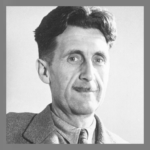
George Orwell (1946) ➜”In Front of Your Nose”, London Tribune, 22 March 1946
Here Orwell is writing about politics after the Second World War, but his message is more relevant than ever in our contemporary age of “post-truth” political discourse and “alternative facts”. He reminds us of the dangers of ignoring reality, and how our ignorance will eventually lead to suffering:
“we are all capable of believing things which we know to be untrue, and then, when we are finally proved wrong, impudently twisting the facts so as to show that we were right. Intellectually, it is possible to carry on this process for an indefinite time: the only check on it is that sooner or later a false belief bumps up against solid reality, usually on a battlefield.”
Building on his title, Orwell offers a reminder that could easily have been taught by the Buddha:
“To see what is in front of one’s nose needs a constant struggle.”
Further Study (optional)
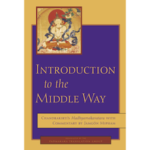
Chandrakirti, trans. Padmakara (2002) Introduction to the Middle Way
The Translators’ Introduction offers an excellent account of the origins of the Madhyamaka, and the development of the Madhyamaka in India and Tibet.
[available for purchase at ➜Amazon]
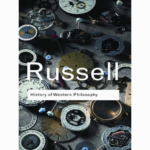
Bertrand Russell (1945) History of Western Philosophy (reprinted 1967)
In the Introduction, Russell offers a magisterial survey of the origins and purpose of philosophy. He explores the perennial need for answers to questions that are beyond the truths of science and where “the confident answers of theologians no longer seem so convincing”, and suggests that we need philosophy to address the challenges of living in an uncertain world:
“Uncertainty, in the presence of vivid hopes and fears, is painful, but must be endured if we wish to live without the support of comforting fairy tales. It is not good either to forget the questions that philosophy asks, or to persuade ourselves that we have found indubitable answers to them. To teach how to live without certainty, and yet without being paralyzed by hesitation, is perhaps the chief thing that philosophy, in our age, can still do for those who study it.”
[available for purchase at ➜Amazon]
Last updated 7 November 2017